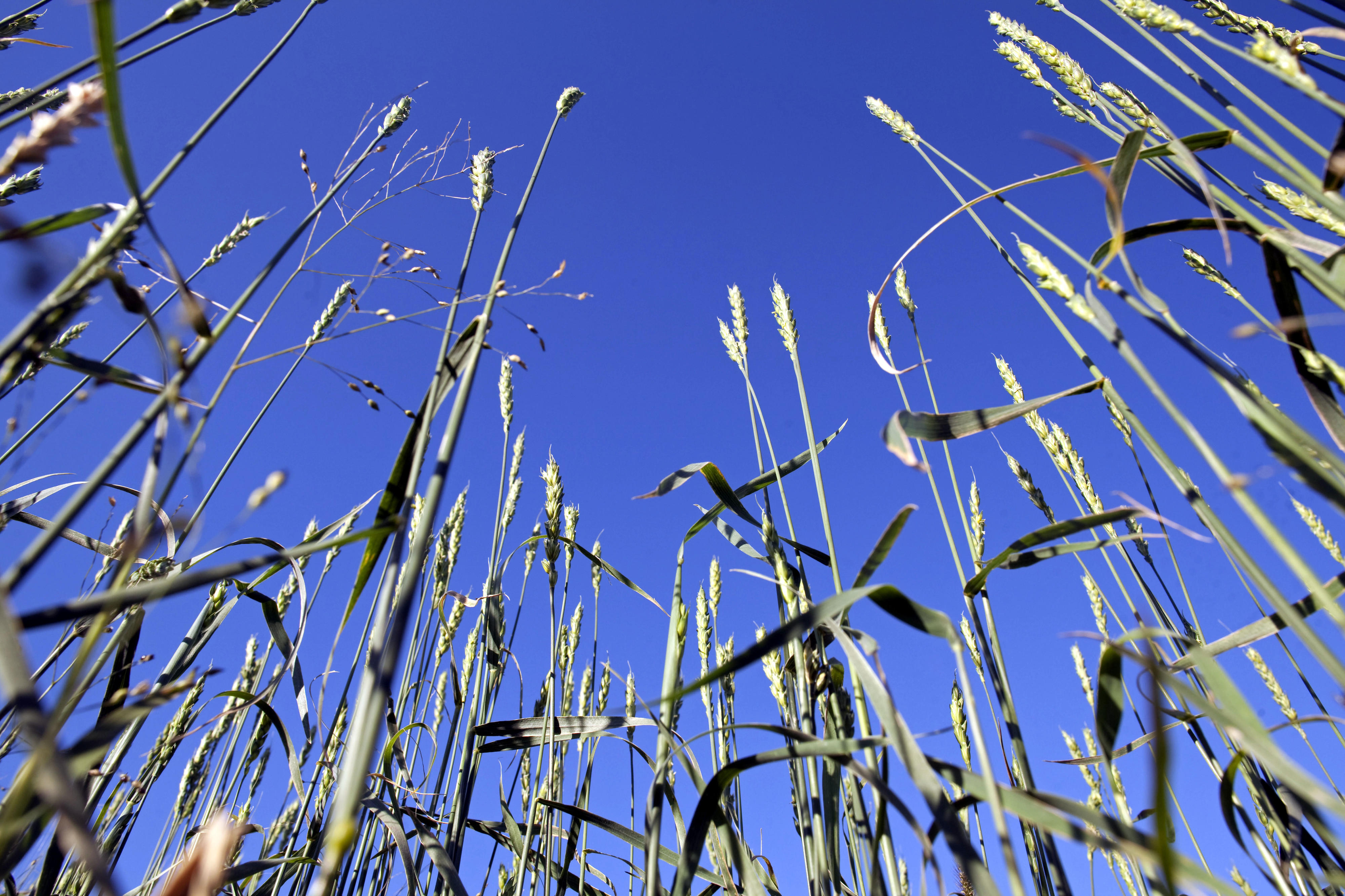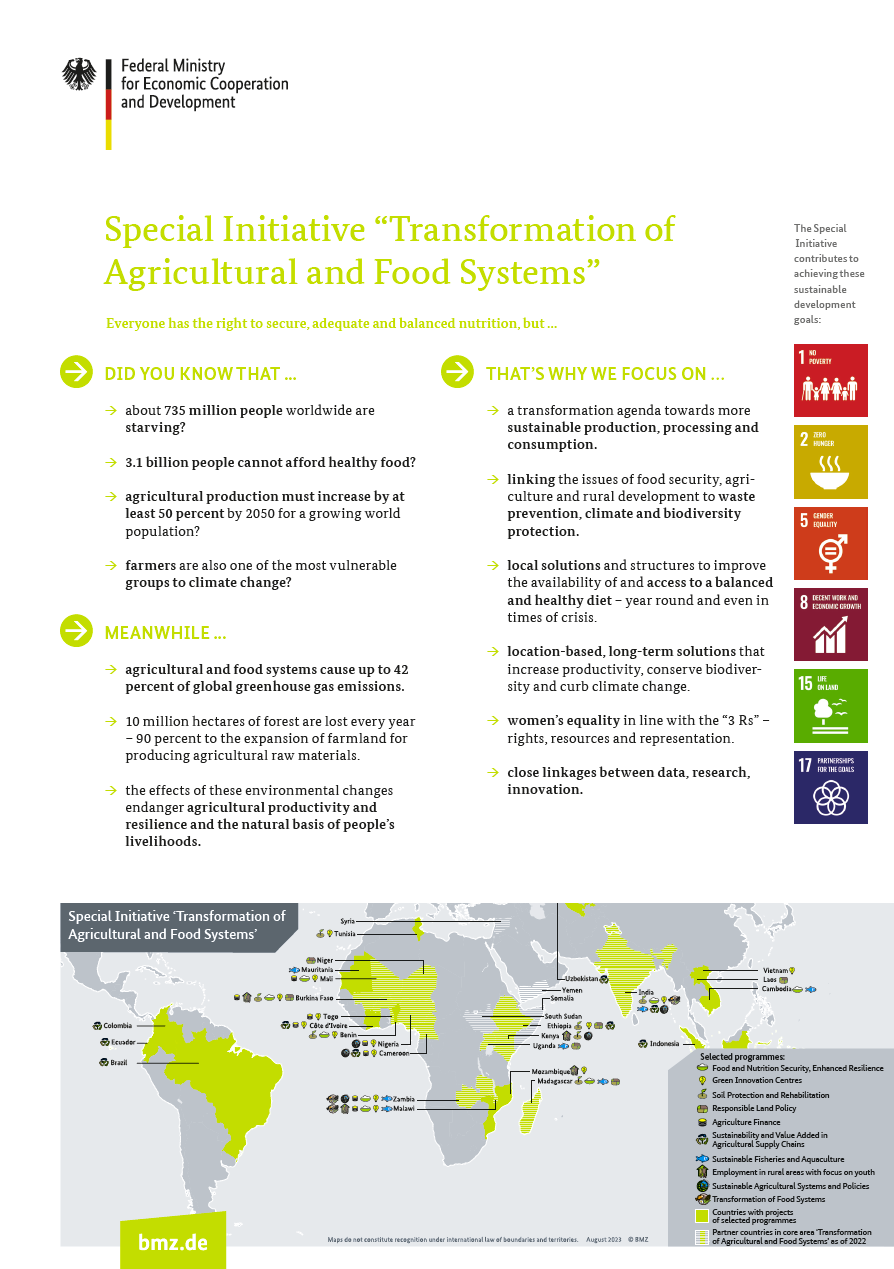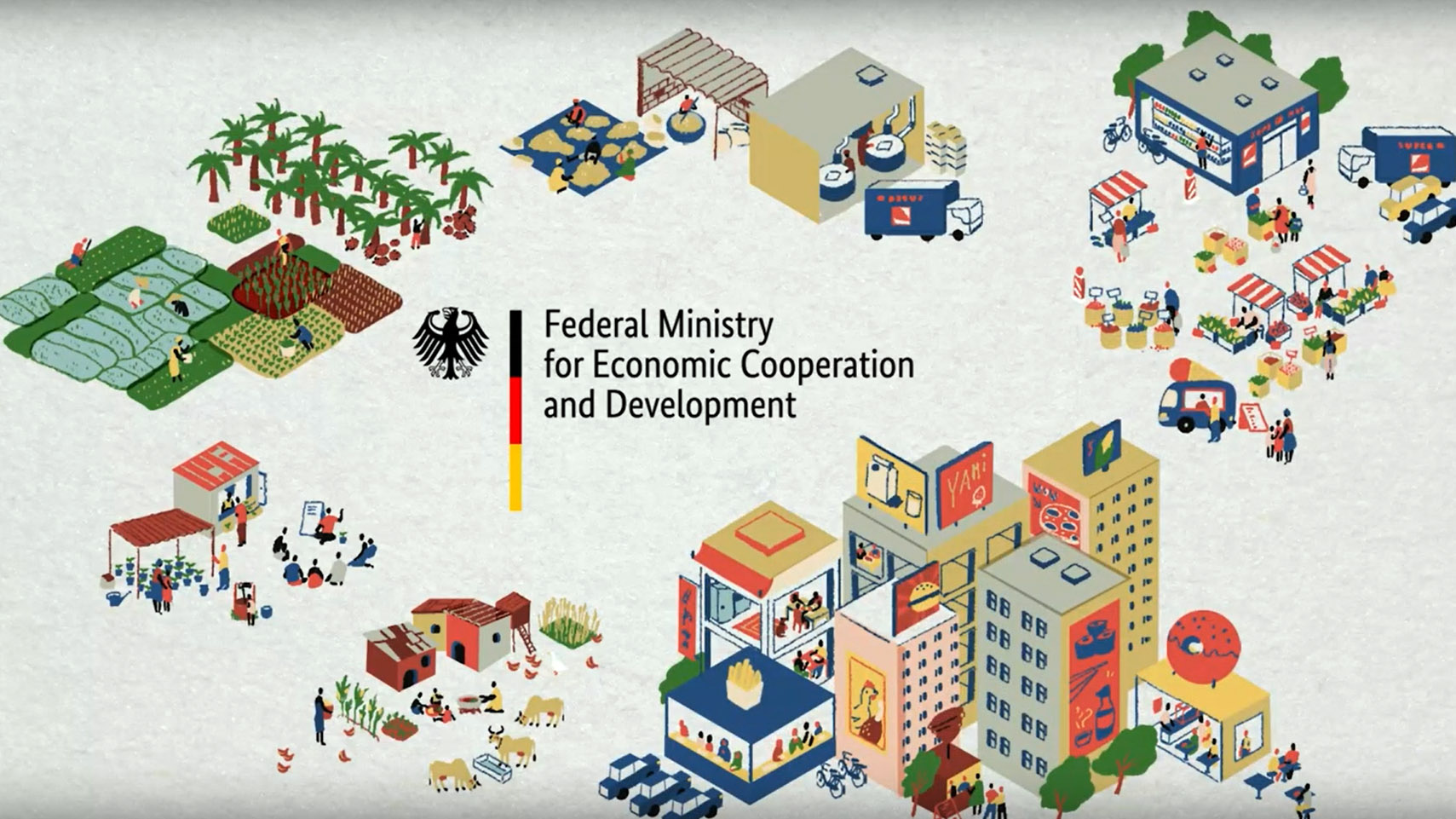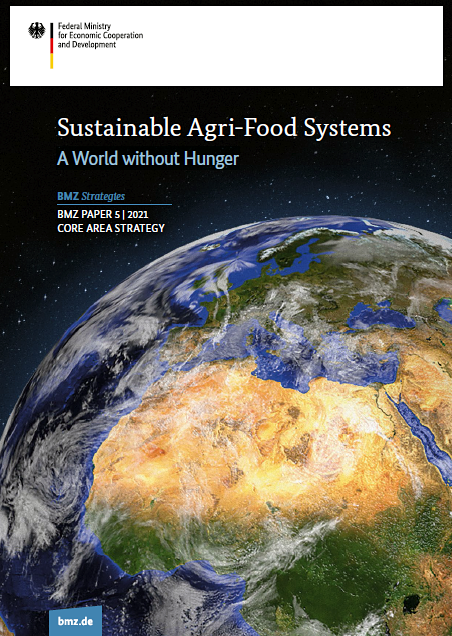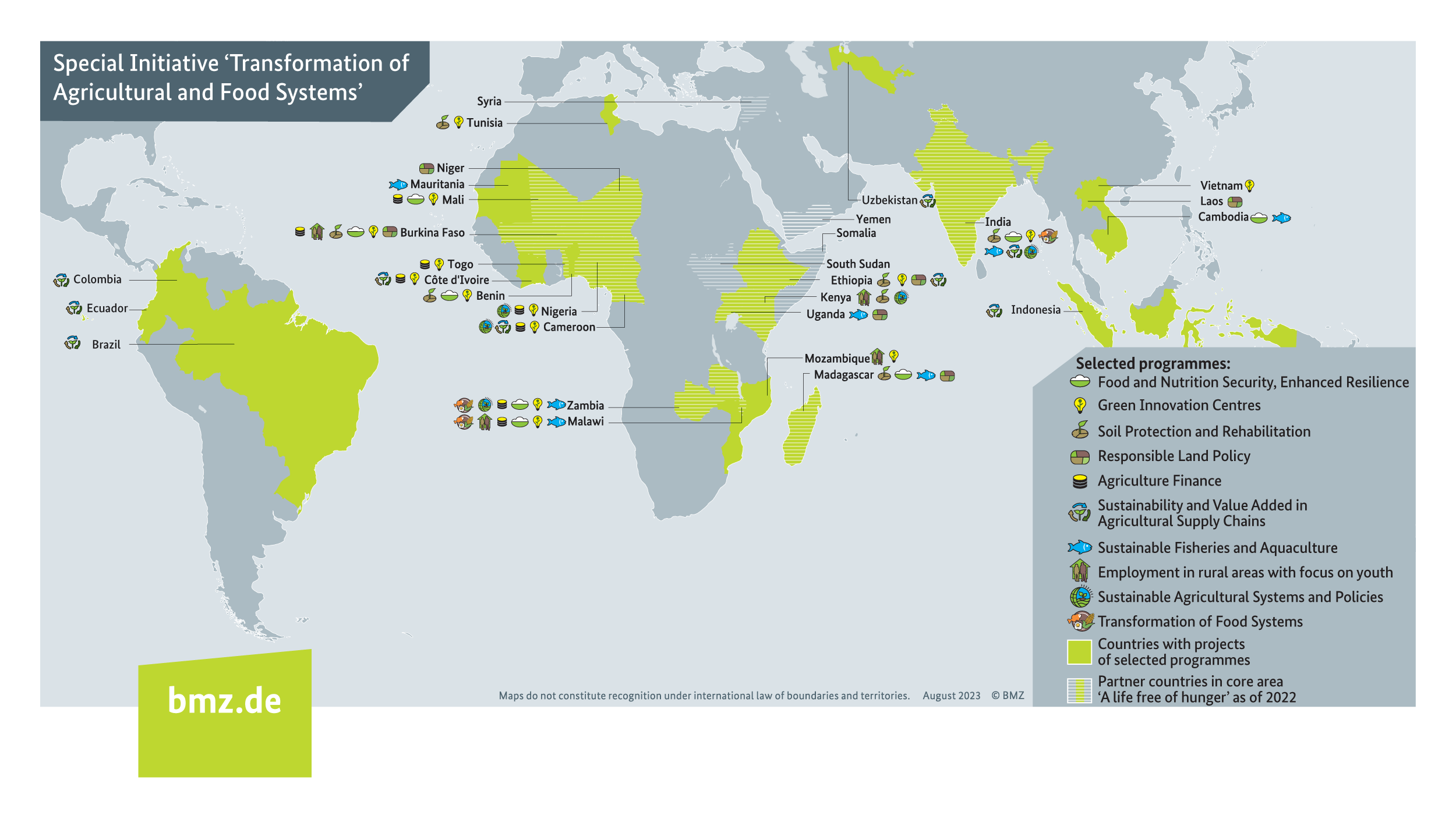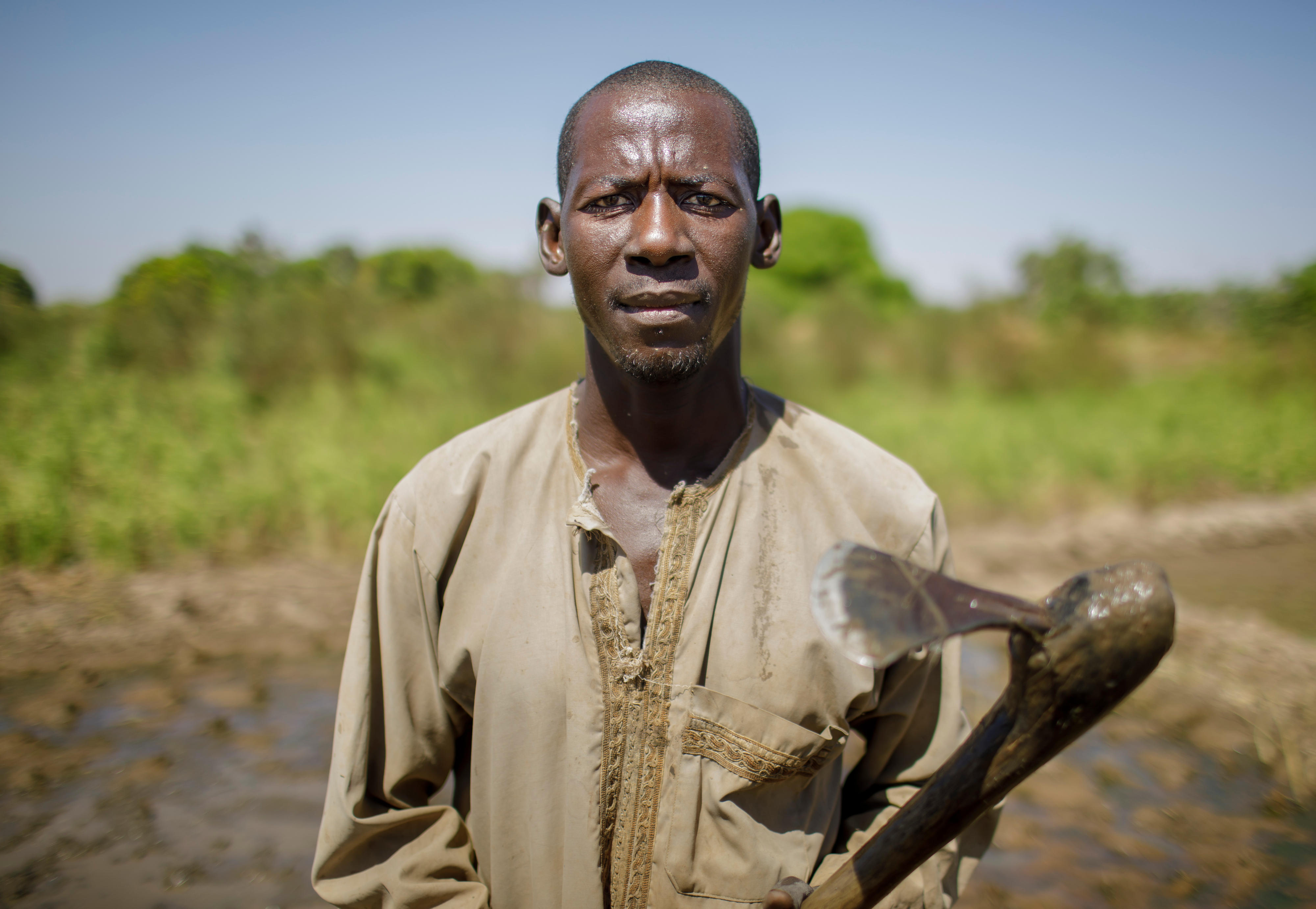Special initiative Transformation of Agricultural and Food Systems
In addition, more investment is needed – in education and training, in infrastructure, and in local value creation.
It is also essential to achieve more gender equality – because women play a key role in food security, yet they are far too often held back from achieving their full potential. If women had the same access to productive resources as men, they could significantly increase their yields and fewer people would have to suffer hunger.
What we do
With its development cooperation activities under the special Initiative “Transformation of Agricultural and Food Systems” Germany is contributing to fighting hunger and malnutrition.
The initiative is an important instrument for achieving quick and effective impact and realising the right of all people to nutritious food.
The special initiative helps strengthen rural development, which is also the basis of food security. In future, the initiative will bring some new priorities to the fore by:
- contributing to global structural policy at the multilateral and international level;
- promoting gender equality;
- developing and piloting innovative approaches and promoting applied research and
- integrating the special initiative into existing cooperation with partner countries – to foster the development of sustainable agricultural and food systems even more.
During Germany’s 2022 G7 Presidency, the G7 reaffirmed its commitment to lift 500 million people out of hunger and malnutrition by 2030. Achieving this goal will also require the long-term transformation of agricultural and food systems in developing countries to ensure greater resilience, sustainability and gender equality.
Facts and figures
Great progress has been made on fighting hunger worldwide since 1990. However, in the last few years hunger rates have been rising again.
- Even before the COVID-19 crisis, there were more than 600 million hungry people in the world. The number rose to around 735 million on average in 2022.
- The pandemic and everything resulting from it have exacerbated the situation further. Supply chains have been disrupted, and income opportunities and jobs have been lost.
- Russia’s war of aggression against Ukraine has made the situation even worse. The world is currently facing the worst famine since World War II. According to forecasts of the World Food Organization (FAO) the war will lead to a further drastic increase in the number of hungry people.
In detail The BMZ Special Initiative “Transformation of Agricultural and Food Systems”
Graphic: Priority countries and other project locations of the Special Initiative “Transformation of Agricultural and Food Systems”
The Federal Ministry for Economic Cooperation and Development (BMZ) invests some 2 billion euros each year in global food security and rural development. In 17 of the BMZ's partner countries, these issues are priority areas of bilateral cooperation.
About one third of that funding is channelled through the Special Initiative “Transformation of Agricultural and Food Systems”, which the BMZ launched in 2014. It targets partner countries that are particularly badly affected by hunger and malnutrition. The initiative comprises about 300 projects and focuses on fostering smallholder farming in Africa.
Questions and answers on the Special Initiative “Transformation of Agricultural and Food Systems”
What kind of agricultural policy do we want to see in the future?
Given that the world population is growing, ending hunger will mean increasing global food production by about 60 per cent by 2050 – using the same amount of land and the same amount of water we have today. That means radically adapting current farming methods as quickly as possible. Farming has to become more sustainable and less resource-intensive – among other things, by using better seeds and precision irrigation, using machinery in a locally appropriate manner, and avoiding any post-harvest losses during transportation and storage. The farming methods of the future also need to conserve biodiversity and avoid cutting down forests.
Why does the special initiative target smallholders?
Smallholder farming is the predominant form of agriculture in developing countries and accounts for the bulk of food production for local use in those countries. If poor smallholder families are able to harvest and sell more produce, this does not only help them as a family, it also puts more food on the market and makes that food affordable – a step towards better food security in both rural and urban settings. The special initiative specifically supports women, as they play a key role in food security.
How has the special initiative responded to the COVID-19 crisis?
The programmes conducted as part of the special initiative Transformation of Agricultural and Food Systems are intended to make small farmers resilient to various types of crisis in the long term. The BMZ reacted to the COVID-19 pandemic by launching a range of new measures to mitigate its impact. Among other things, it has provided food, seeds and fertiliser. Activities for preventing post-harvest losses and promoting crop diversification are currently being expanded in order to make smallholder families more resilient during the pandemic. Public information campaigns have been launched to educate people on how to stay healthy, and face masks are provided to participants at training events.
How has the special initiative reacted to the war in Ukraine?
Additional funding of 525 million euros was made available in 2022 for measures under this special initiative, on top of the existing budget. The aim has been to secure agricultural production, keep agricultural trade going and reduce the risk of poverty and hunger. The measures focus primarily on Africa, the Middle East and countries that are particularly affected by the current increases in food prices.
Why does fighting hunger also help build peace?
Poverty, conflict and climate change are among the chief causes of hunger. And hunger and food insecurity, in their turn, may result in increased poverty. They can also cause or exacerbate unrest and conflict. Investing in rural development and food security is key to breaking this eternal vicious circle. So the special initiative Transformation of Agricultural and Food Systems is also making an important contribution towards building peace and tackling the root causes of displacement.
Who is the BMZ partnering with?
Close cooperation with other players is a key principle of the initiative. The BMZ works with partners from civil society, the private sector, academia, politics and faith-based organisations, and with its implementing organisations GIZ and KfW.
Important partners in Africa include the Comprehensive Africa Agriculture Development Programme (CAADP) of the African Union and the various institutions engaged in international agricultural research.
As at: 02/01/2023
